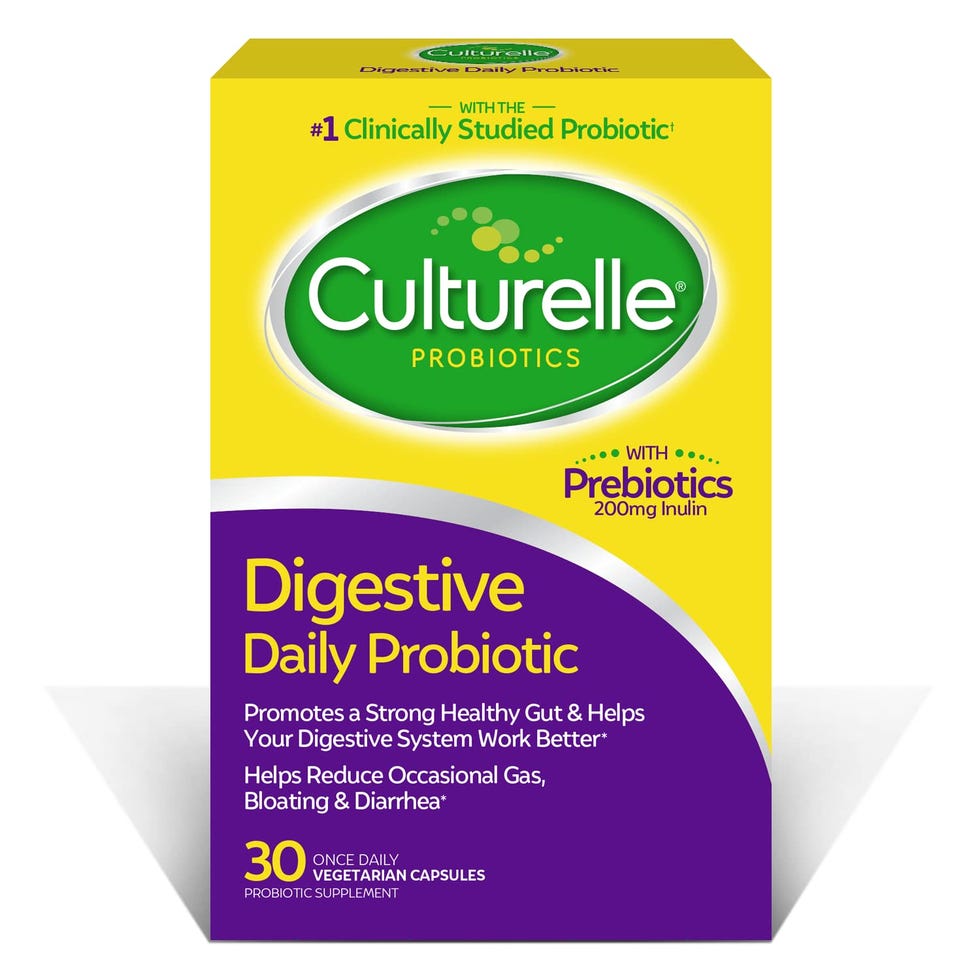Akkermansia may not sound like anything you’ve ever taken before, but this gut-supporting supplement is growing in popularity. In fact, from January 2004 to February 2022, the annual number of studies published on Akkermansia grew 33.36%, and researchers say it “is likely to remain a research hotspot in the foreseeable future and may contribute to human health.”
Akkermansia is a member of the “good” bacteria community that naturally exists in our digestive system, and thanks to recent advances in manufacturing, it’s readily available in supplement form. But does Akkermansia have health benefits? Should you be taking it? We sifted through studies and reached out to experts to find out.
What is Akkermansia?
Akkermansia muciniphila is a beneficial strain of probiotic bacteria that lives in the mucus that covers epithelial cells in the lining of your gut. Akkermansia feeds on mucin (a protein in the mucus) and produces short chain fatty acids that “strengthen the tight junctions in between our gut cells, keeping the bad stuff out of our gut,” says Madiha Saeed, M.D., an integrative family physician and the author of several books including The Holistic Rx. “The more mucin Akkermansia uses, the more it encourages the epithelial cells to make more mucin, which then improves gut function and overall health.” It’s the only bacteria strain that does this in our gut, she adds.
One interesting tidbit about Akkermansia is that research shows it makes up 1 to 4% of a healthy person’s gut microbiome. “When you think about how many different strains are in the gut, that’s a lot!” says Taylor Berggren, M.S., R.D.N., a microbiome expert at Pendulum, which sells an Akkermansia supplement. While stool tests can measure how much Akkermansia you have, it’s not a routine part of health care right now.
What are the health benefits of Akkermansia?
More research is needed on humans, but so far, studies (mostly on animal models) have linked robust levels of Akkermansia to improved glucose metabolism, less inflammation, a healthier gut, better cognition, less anxiety and good neurotransmitter development. Some research even suggests that “patients with this gut bacteria are more likely to respond to cancer treatment and are able to call their immune system to fight cancer,” says Dr. Saeed. Meanwhile, low levels of Akkermansia can be caused by “age, low-fiber diets, antibiotic use and high-stress situations,” says Dr. Saeed.
Can you get Akkermansia from food?
While many probiotics are found in foods like yogurt and kimchi, “because Akkermansia muciniphila is not able to grow in the presence of oxygen, you can't get it from food,” says Berggren. “The only food Akkermansia has even been isolated in is human breastmilk, actually!”
What you can do is load up on things that Akkermansia like to eat — high-fiber plant foods that contain polyphenols and prebiotics. “The foods that naturally increase Akkermansia levels are pomegranate and other berries (like raspberries, blueberries, blackberries, cranberries and grapes), apples, nuts (like walnuts and pecans) and green tea,” says Dr. Saeed. “Prebiotic fibers are nondigestible carbohydrates that feed these gut bugs, like bananas, onions, garlic or Jerusalem artichokes.”
Does Akkermansia have side effects?
As with any supplement, it’s best to chat with your doctor and get their approval before you start taking Akkermansia. The bacteria is generally viewed as safe to consume, but it could cause gastrointestinal issues like bloating, nausea or loose stools as your body adjusts to it. Also, research suggests that it may not be helpful for people who have or are at risk for inflammatory bowel disease, are dealing with a Salmonella typhimurium infection or recently took antibiotics.
How to choose an Akkermansia supplement
The big question is: Should you choose a supplement that contains live bacteria or pasteurized (not live) bacteria? “Akkermansia is an anaerobic strain,” says Dr. Saeed. “This means that in order to live, it needs an oxygen-free environment, so it can be difficult to get through a supplement. Certain companies build their own oxygen-free facility to manufacture and sell this live strain.”
It was long thought that only live Akkermansia would be effective as a supplement, but an increasing amount of research shows that pasteurized versions are just as effective in some cases. If you’re seeking out Akkermansia for a specific health purpose, ask your doctor.
Because so much goes into the research and development of Akkermansia capsules (especially live ones), they can be expensive compared to other supplements like multivitamins, so the extra leg work is worth it. “Additionally, you want to make sure the supplement you choose uses an acid-resistant capsule so that the probiotics make it past the stomach acid and into the large intestine where they can help support your overall health,” says Berggren.
One last thing to keep in mind: Whenever you purchase a supplement, it’s smart to prioritize a product with that has third party certifications (such as from U.S. Pharmacopeia (USP) and NSF International) and clinical research behind it. You can also request a Certificate of Analysis from the manufacturer if you’d like even more information on what exactly is in the bottle you’re buying.
The bottom line
Akkermansia is a probiotic bacteria that’s integral to our gut health and increasing the amount we have (either through supplements or high-fiber and polyphenol-rich plant foods) could be helpful for some people, but more research on humans is needed before we can say for sure. “The gut microbiome is a hot topic, but there is still so much opportunity for innovation,” says Berggren. “With the development of technology to grow keystone strains in an oxygen-free environment, the possibilities open to apply what scientists see in the literature to human health.”


















